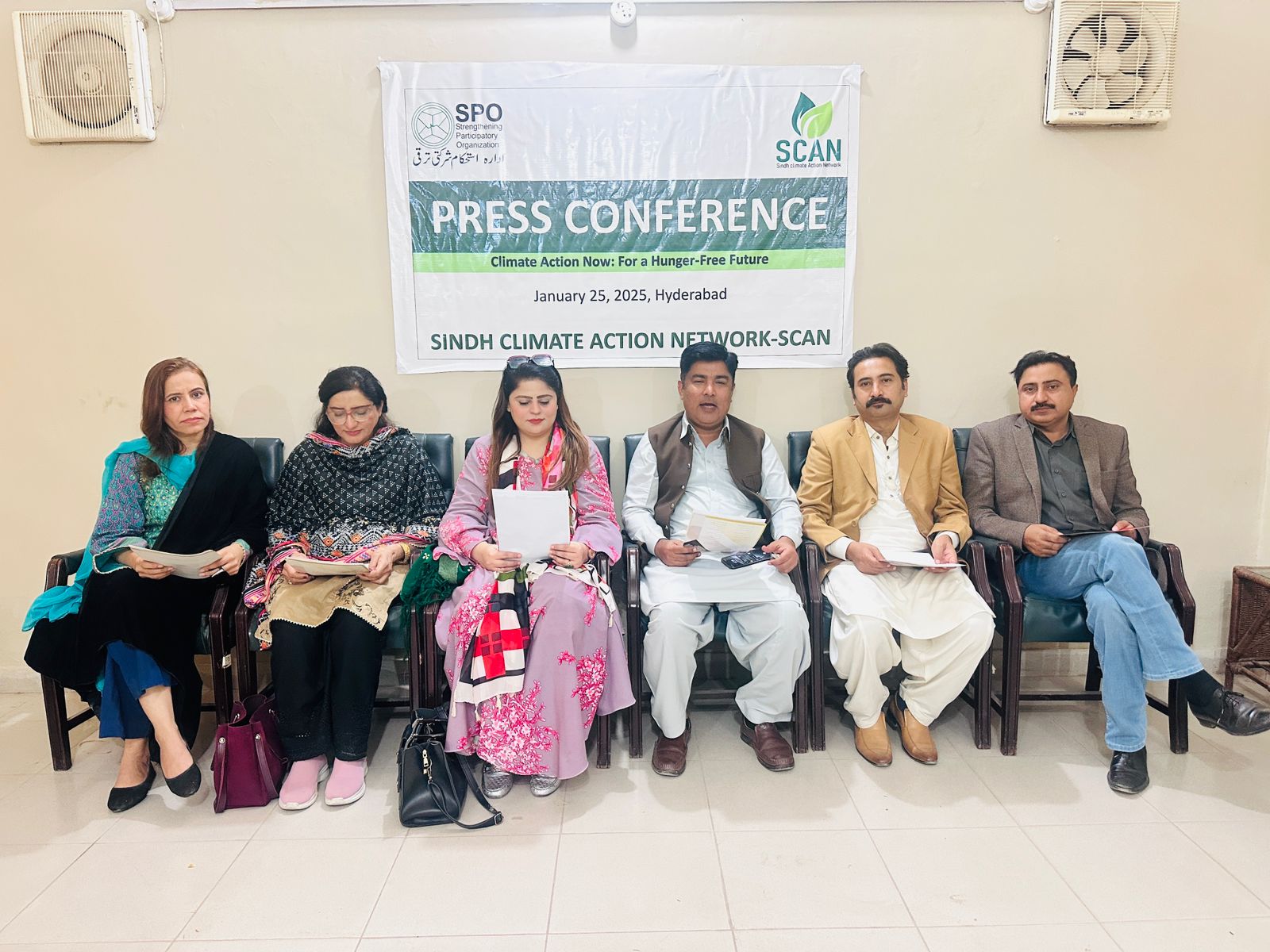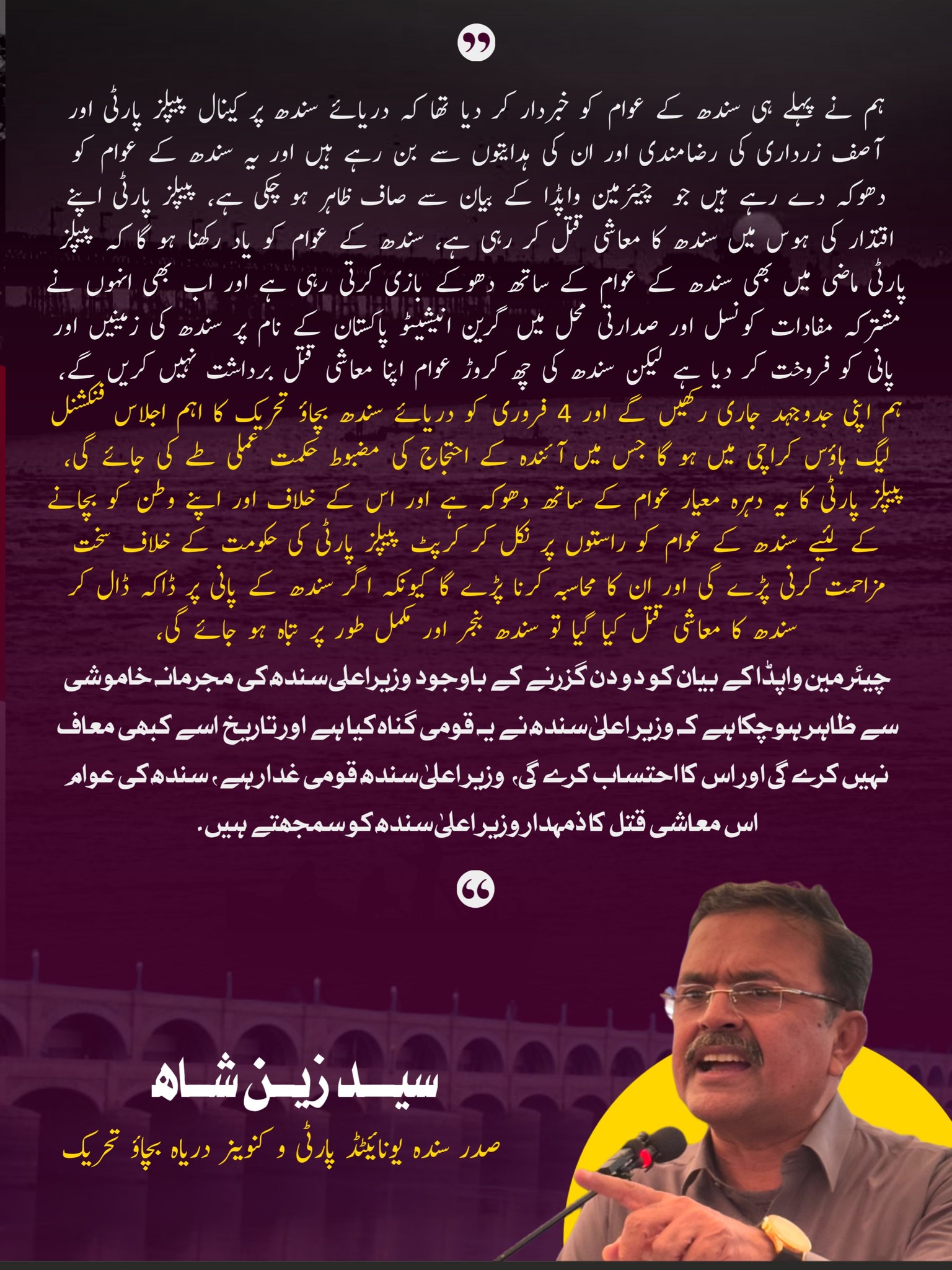Sindh Faces Severe Drought as Rainfall Drops 52% Below Average
Sanghar (Hasnain Ashiq Saand) Sindh is on the brink of a severe drought as the province experiences a drastic 52% decline in rainfall compared to the average, raising serious concerns about water security, agriculture, and the livelihoods of millions.The Sindh Climate Action Network (SCAN) has sounded the alarm, warning that the situation could lead to a humanitarian crisis, particularly for vulnerable communities already struggling with food insecurity.
“The situation is critical,” said Hizbullah Mangrio, Chairperson of SCAN. “With such a massive reduction in rainfall, we are facing serious threats to agriculture, livestock, and water availability. Without immediate action, this could result in displacement, poverty, and widespread suffering.”
Climate experts at SCAN link the crisis to climate change, emphasizing that Sindh, despite contributing minimally to global greenhouse gas emissions, suffers disproportionately from its effects.
“Sindh and other vulnerable regions are paying the price for the pollution caused by industrialized nations,” said Kashif Siddiqui, SCAN’s Senior Vice Chairperson. “This is a fundamental injustice.”
Adding to the crisis, SCAN criticized the newly elected U.S. government’s decision to cut financial support for welfare organizations tackling malnutrition and climate change. The group warned that such actions would severely impact efforts to mitigate climate disasters and aid struggling communities.
“At a time when global cooperation is crucial, these funding cuts are a devastating blow,” said Amina Memon, Vice Chairperson of SCAN. “Developed nations must honor their climate finance commitments—not as charity, but as a responsibility.”
SCAN called on the Sindh government to take immediate steps to combat the crisis by implementing water conservation strategies, supporting farmers, and ensuring access to clean drinking water. The group also urged international governments to increase financial aid for climate adaptation and disaster preparedness in Sindh.
“We cannot afford to wait any longer,” said Meena Shaikh, a SCAN member. “The time for action is now. The world must step up before it’s too late.”




Comments (0)